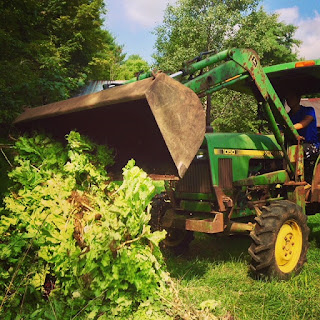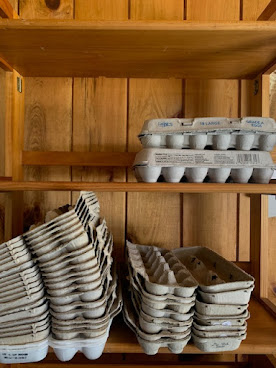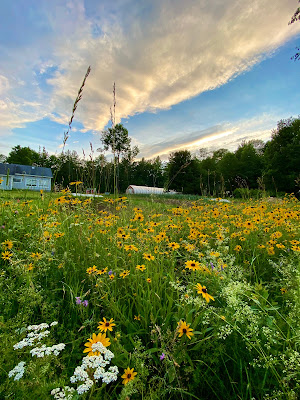Composting: A Concept
Want to help the planet? Save money? While helping your garden?
If your answer is "yes," then you should look into composting!!
The last two years we have enhanced our own composting system at CCF! As a result, we've seen big changes in our overall soil health. Our composted materials are used in several of our smaller gardens and also in our potting mixes for springtime seedlings.
Here are some basic things you should know about composting before you get started...
Here are some basic things you should know about composting before you get started...
*What is composting?
-the practice of embracing the decomposition of organic matter, and as a result, using it as a natural fertilizer addition in soil.
*What are the benefits of composting?
-sustainable/renewable fertilizer containing no synthetic chemicals
-lowers carbon footprint by decreasing methane output from soil in landfills
-allows soil to hold more moisture
-fosters helpful bacteria and fungi to grow in soil
-little or no cost!
*What can you compost?
-food scraps (vegetables, fruits, coffee grounds, etc.)
-unwanted/dying plants and weeds
-old flower bouquets
*What can you contain your compost in?
-Buy/DIY Wooden bin or barrel
-should have 2-3 compartments to separate the different cycles of decomposition between older and younger batches of compost
-Plastic Tumbler
-available at Home Depot/Ace Hardware etc.
-Compost pile (typically on the ground)
*What do you need to compost successfully?
-Source of Carbon
-Examples: fallen leaves, wood chips, pine shavings, cardboard, recycled paper
-Source of Nitrogen
-Examples: grass clippings, tea bags, old plants
-breaks down Carbon
-releases heat=good for decomposition
-Source of Moisture
-sprinkle water/juice from fruits
-aids in decomposition process (dry matter doesn't rot)
*make sure not to add too much liquid, as you don't want to create a stinky swamp
-a container/set location for your compost
-for best results: pick a warm, shaded spot near your garden
-a fork/stick or other stirring device
-stirring is important for compost aeration, which allows for the survival of necessary aerobic bacteria
*How long does it take to compost?
-2-5 weeks (depending on how often the pile is mixed)
For more information on composting visit:
https://www.gardeningknowhow.com/composting/basics/turning-compost-pile.htm
https://www.diynetwork.com/how-to/outdoors/gardening/how-to-make-compost
https://www.epa.gov/recycle/composting-home



Comments
Post a Comment